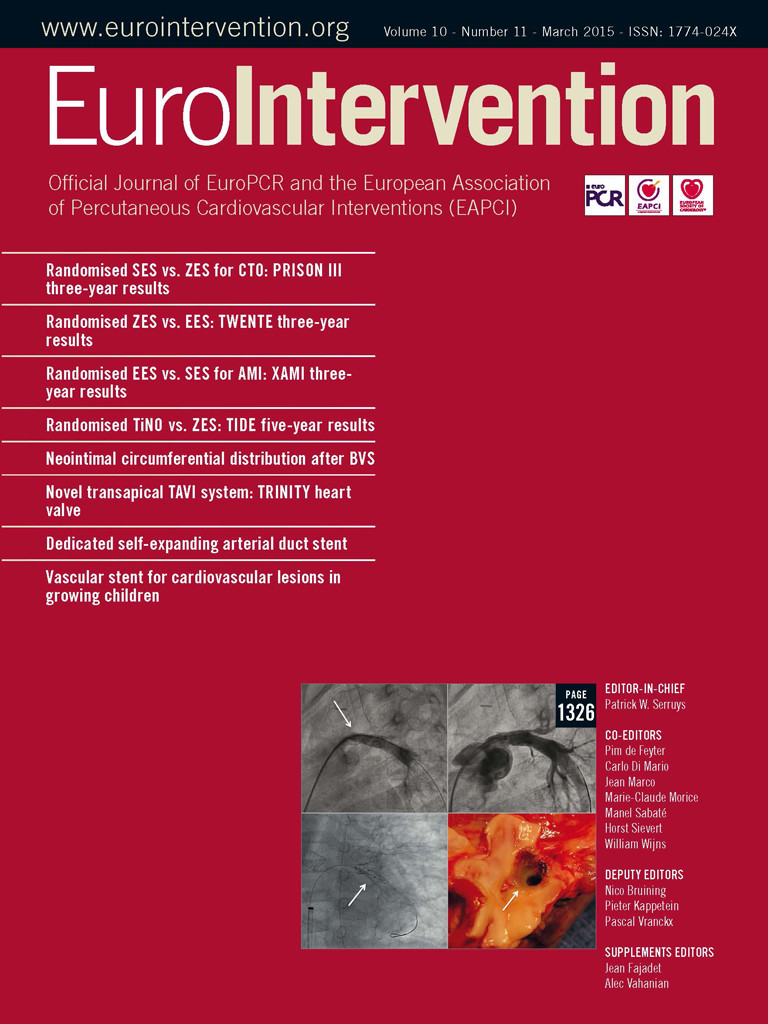Since the creation of the EAPCI, one of the key goals of our Association has been to ensure the education of young interventionalists. This includes, among other things, the EAPCI Training and Research Grants which are awarded each year during our annual meeting, EuroPCR. Another example, in the forefront of what our Association does for younger cardiologists is the “Initiatives For Young Interventionalists” committee, currently led by Associate Professor Davide Capodanno from the University of Catania, Italy, and Dr Maria Radu of Denmark. Within the structure of the EAPCI and ESC, this committee is actively engaged in providing young interventional cardiologists and aspiring specialists with the network and information they need to advance successfully in their careers.
In this regard, preparations are now underway for the second edition of the EAPCI “European Interventional Cardiology Fellows Course”, which will take place at the European Heart House, Sophia Antipolis, France, on the 19th and 20th of June. With a target audience of Cardiology Fellows who either have been accepted for or are currently following their training in Interventional Cardiology, as well as younger cardiologists who have either recently completed training or wish to refresh their interventional skills, the Fellows Course is limited to 130 participants, which is why it is so important to register early. The goals of the Fellows Course go well beyond the training itself, offering a unique educational atmosphere and a forum for open exchange to foster “links and long-term relationships” among the participants that will be useful, not only in their personal development, but also enabling “a greater integration of European professionals in Interventional Cardiology” in the future.
Providing a comprehensive overview of interventional cardiology, the Fellows Course uses a carefully selected review of cases and complications for each of the various subject areas, with the additional feature of working towards the practical application of what has been discussed. The internationally recognised faculty currently includes, amongst others, Emanuele Barbato (Belgium), Andreas Baumbach (UK), Javier Escaned (Spain), Adnan Kastrati (Germany), Julinda Mehilli (Germany), Marie-Claude Morice (France), Manel Sabate (Spain), and Holger Thiele (Germany). Questions from the audience are encouraged during these lectures, and the breaks will allow interaction between the faculty and participants.
A preliminary scientific programme has now been established for the two days of the course. After introducing participants to the work of the EAPCI and the Young initiative, the first day will continue by setting out the historical background and basics of interventional cardiology. In addition, essential tools used in interventional cardiology will be discussed, touching on such subjects as radiation risk management, vascular access, catheters and wires, stents and scaffolds. This first day of the course will also review the cathlab’s diagnostic arsenal, looking at IVUS and OCT, discussing topics such as “when or when not to use non-invasive functional tests, FFR, iFR”. There will be a section on “tips and tricks in PCI techniques”, with a focus on multivessel and left main disease as well as the treatment of bifurcations and CTOs. A session concerning interventional pharmacology will expose our current knowledge and use of antiplatelet therapies, anticoagulants and antidotes.
The second day will begin by considering acute coronary syndromes, pre- and post-procedural management together with complications and how to “prevent them or solve them”. Non-coronary interventions will also be discussed, with an in-depth look at TAVI, mitral and emerging interventions. There will also be a wide-ranging session on the role of statistics in interventional cardiology, an essential feature in understanding and designing studies.
All in all, a comprehensive and all-inclusive programme, with the opportunity for each participant to question the lecturers in order to understand fully the different theories and mechanisms being discussed. For more detailed and up-to-date information about the Fellows Course, please refer to the EAPCI website. And please note that, with its limited enrolment, if you are interested, or know of someone who might be, we urge you to consider registering as early as possible (www.escardio.org/education/live-events/courses/PCI-fellows/Pages/welcome.aspx?hit=wca). We take this opportunity to remind you that, besides the Fellows Course, the website of both the EAPCI and EuroIntervention allow you to keep abreast of what is happening in interventional cardiology and the interventional cardiology community.

